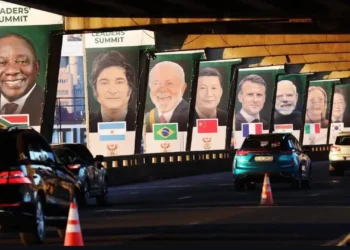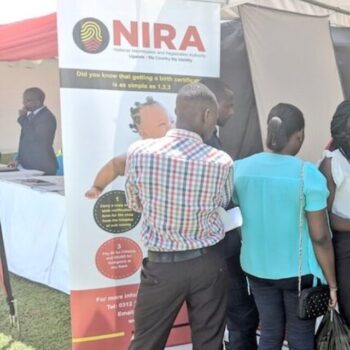The copyright case against Ed Sheeran was filed by a British artist named Sami Chokri (aka Sami Switch), who claimed the singer snatched his song Oh Why, which was released in 2015. Sheeran won his copyright case on Wednesday (April 6).
KAMPALA | NOW THEN DIGITAL — Sami Chokri (alias Sami Switch) brought a copyright case against Ed Sheeran, claiming that the singer had plagiarized his song Oh Why, which was released in 2015. On Wednesday (April 6), a UK High Court ruled in Sheeran’s favor.
- Sami Chokri (aka Sami Switch), a British artist who claimed Sheeran plagiarized his 2015 song Oh Why, filed a copyright claim against Ed Sheeran.
- The ruling in Sheeran’s favor was handed down Wednesday (April 6).
- Chokri and songwriter Ross O’Donoghue launched the legal battle four years ago, and the case was heard in court in London last month.
- The song was written by Sheeran, Johnny McDaid of Snow Patrol and producer Steve Mac. The song was released in 2017.
- Read also: Just before the Foo Fighters were set to appear in Colombia, the band revealed the death of drummer Taylor Hawkins.
Songwriting credits for Shape of You include Sheeran, Snow Patrol’s Johnny McDaid and producer Steve Mac.
The song was released in 2017, and Chokri and songwriter Ross O’Donoghue launched a legal battle four years ago, and it went on trial in London last month.
Judge Antony Zacaroli ruled that Sheeran and his collaborators “neither deliberately nor subconsciously copied” Chokri’s song.
Zacaroli also referred to “similarities between the one-bar phrase” in the two songs as “only a starting point for a possible infringement”.
He added: “The use of the first four notes of the rising minor pentatonic scale for the melody is so short, simple, commonplace and obvious in the context of the rest of the song that it is not credible that Sheeran sought out inspiration from other songs to come up with it.”
He concluded that Sheeran “had not heard” Chokri’s song, in response to the claim that he heard it prior to writing his own song.
Sheeran stated in a video statement on Instagram following the ruling that, although the defendants were “happy with the result”, they felt “claims like these are far too common and have become a culture where an action is made in order to avoid the cost of taking it to court, regardless of if there really is a valid claim”.
In recent years, lawsuits alleging copyright violations have become increasingly common in the music industry. Last month, Dua Lipa was sued for alleged copyright infringement in relation to her song Levitating.
There was another high profile case in August 2020, when Kendrick Lamar was sued by a musician named Terrance Hayes, for copyright infringement over Lamar’s hit single, Loyalty, taken from his fourth album, Damn.
Lizzo (aka Melissa Jefferson) was the subject of a copyright infringement lawsuit filed by three songwriters – Justin Raisen, Jeremiah Raisen, and Justin ‘Yves’ Rothman – that was also dismissed by a California judge that same month.
Previously, Sheeran has been sued on more than one occasion by various rights holders for alleged copyright infringement, including over his other hits Photograph (in 2016) and Thinking Out Loud (in 2018).
The full statement from Ed Sheeran concerning the copyright case is below.
Hey guys, me Johnny and Steve have made a joint statement that will be press released on the outcome of this case, but I wanted to make a small video to talk about it a bit, because I’ve not really been able to say anything whilst it’s been going on.
Whilst we are obviously happy with the result, I feel like claims like this are way too common now and have become a culture where a claim is made with the idea that a settlement will be cheaper than taking it to court, even if there’s no base for the claim.
It is really damaging to the songwriting industry. There’s only so many notes and very few chords used in pop music. Coincidence is bound to happen if 60,000 songs are being released everyday on Spotify.
That’s 22 million songs a year and there’s only 12 notes that are available. I don’t want to take anything away from the pain and hurt suffered from both sides of this case, but I just want to say I’m not an entity. I’m not a corporation. I’m a human being. I’m a father, I’m a husband. I’m a son.
Lawsuits are not a pleasant experience and I hope with this ruling, it means in the future baseless claims like this can be avoided. This really does have to end. Me, Johnny and Steve are very grateful for all the support sent to us by fellow songwriters over the last few weeks. Hopefully we can all get back to writing songs rather than having to prove that we can write them. Thank you.













